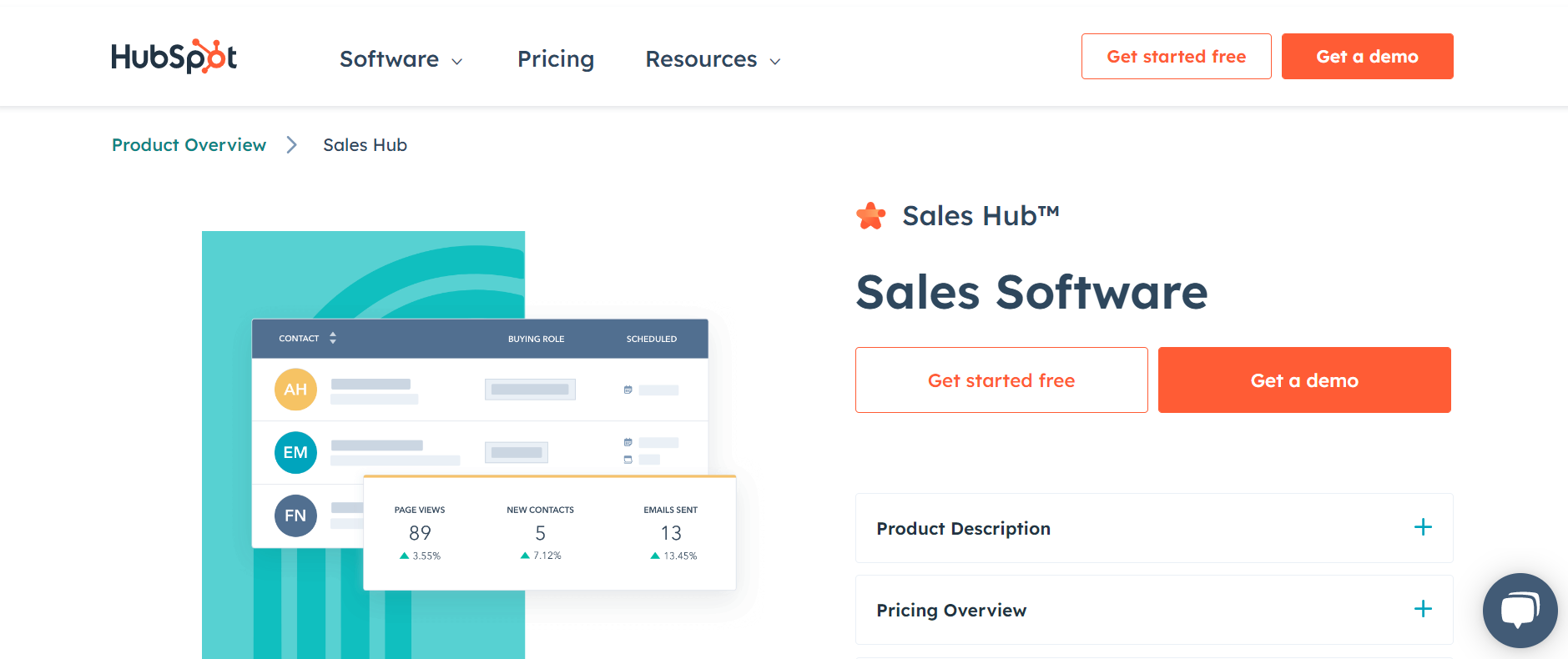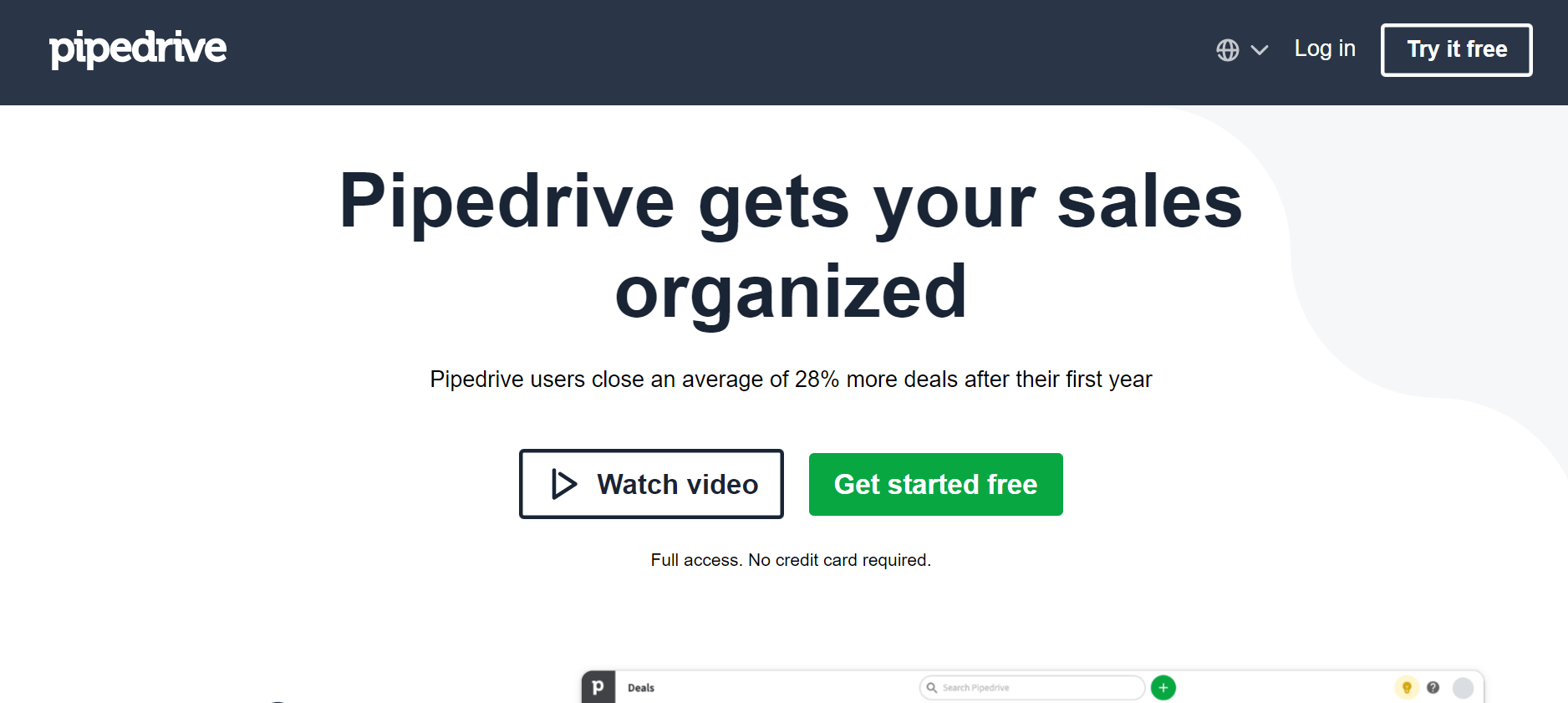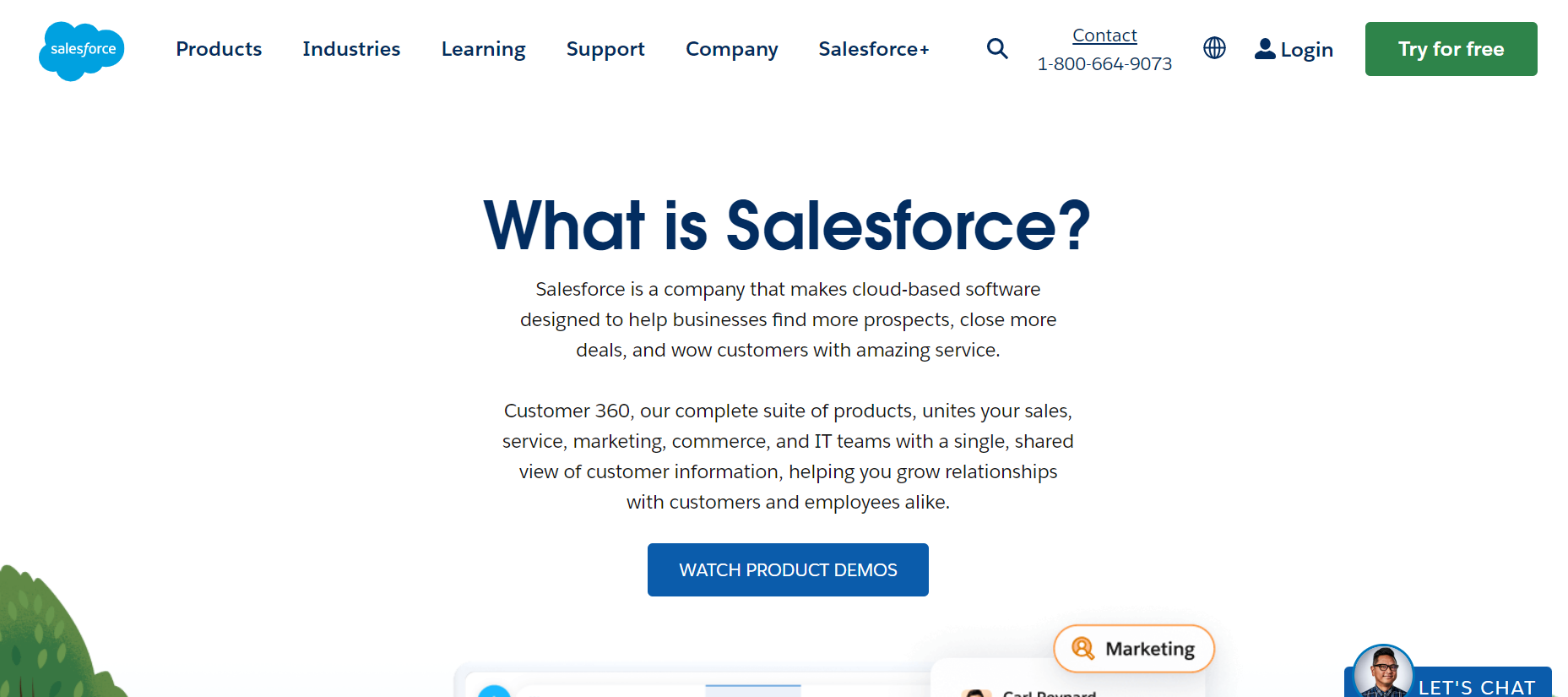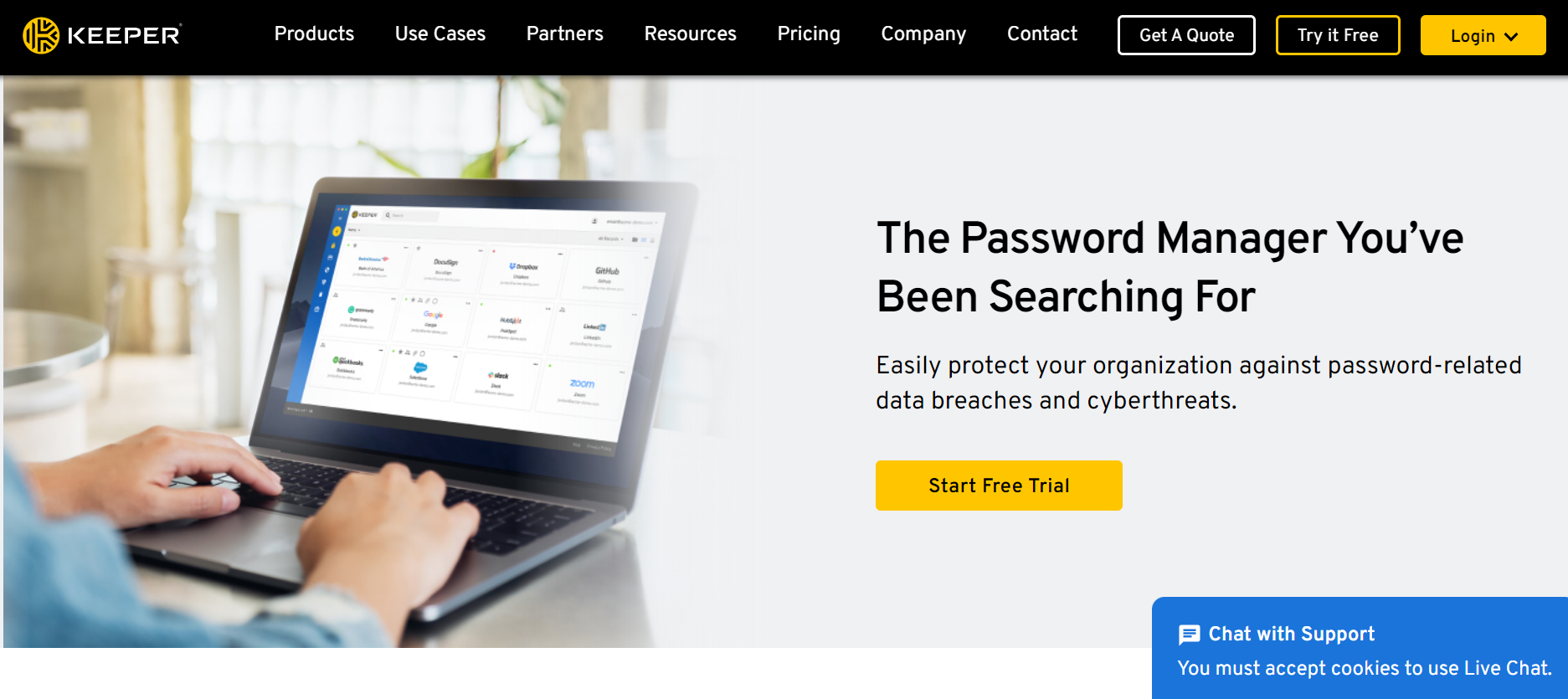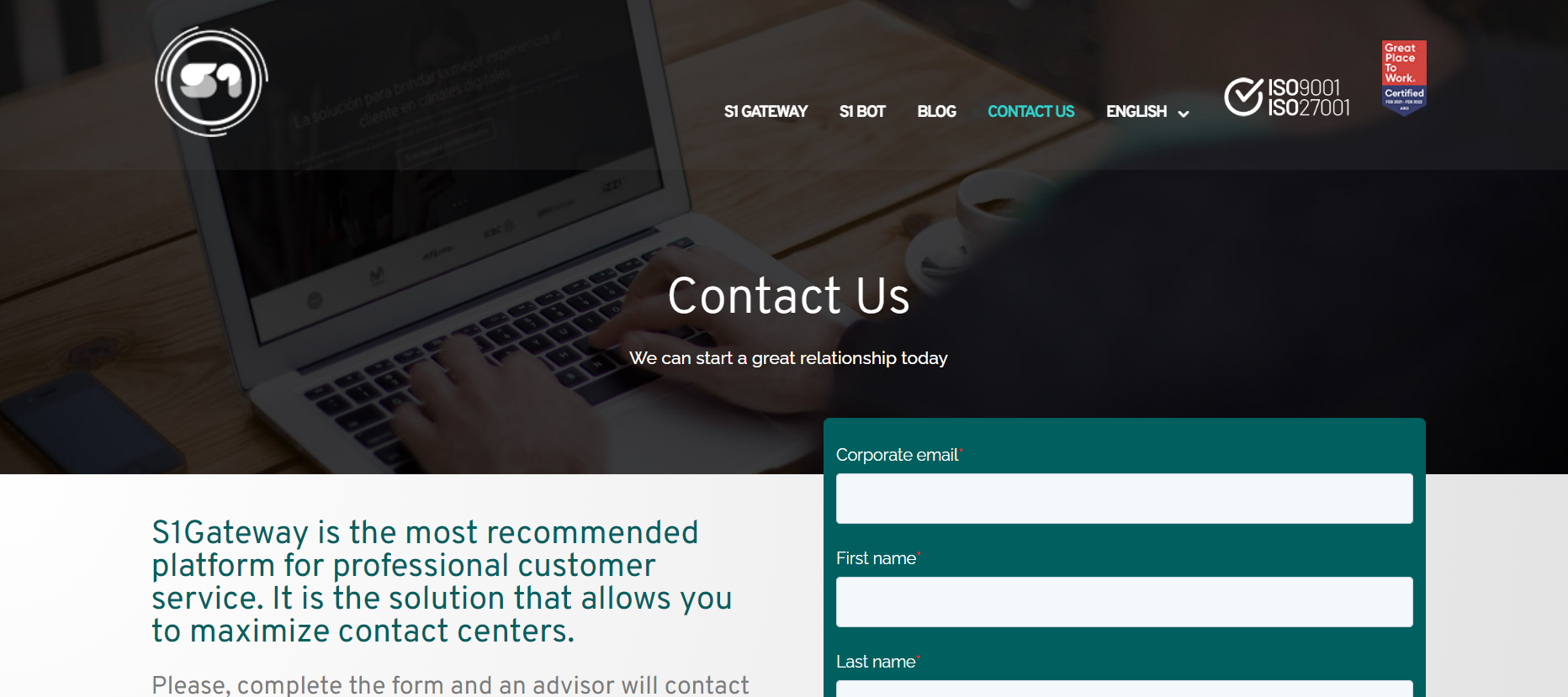- Bottom Line Up Front
- What are Investor Relations?
- What is a CRM?
- What Are the Benefits of Using a CRM?
- What are the Disadvantages of Using a CRM?
- What Features Should I look for in a CRM?
- Why Use a CRM for Investor Relations?
- 1. HubSpot Sales: Best Overall CRM for Investor Relations
- 2. Pipedrive: Best CRM for Investor Relations Tracking
- 3. Salesforce CRM: Best for Large Enterprises
- 4. Zoho CRM: Best Free CRM for Investor Relations
- 5. Intercom: Best Scalable CRM for Investor Relations
- FAQs
- The Best CRM for You
There are a number of great CRM (Customer Relationship Management software) products available on the market, each with its own unique set of features and benefits. But which one is the best for investor relations? As a business owner with investors, you know how critical it is that you maintain good relationships with those who give you money.
In this article, we’ll take a look at some of the best CRMs for investor relations: HubSpot Sales, Pipedrive, Salesforce, Zoho, and Intercom. We’ll review their features and discuss why they offer some of the most robust tools for your investor relations processes.
Bottom Line Up Front
There’s no one size fits all solution when it comes to a CRM solution for your business, but the best overall is HubSpot, while Intercom offers the most robust solutions with great scalability and Salesforce offers great enterprise solutions.
What are Investor Relations?
First things first, let’s talk about what investor relations actually is. Investor relations (IR) is the strategic management of relationships between a company and its investors. The goal of IR is to enhance shareholder value by building and maintaining strong relationships with investors. It’s pretty obvious that if you do this, you’ll be able to raise more money when the time comes, which is incredibly important for growth and sustainability.
This can be accomplished through a variety of activities, such as providing timely and accurate financial information, hosting regular conference calls and webcasts, and maintaining an active presence on social media.
What is a CRM?
A CRM, or customer relationship management system, is a software tool that businesses use to manage their customer data. CRMs typically include features such as contact management, sales automation, and marketing automation.
What Are the Benefits of Using a CRM?
There are several benefits of using a CRM, including the ability to:
- Centralize your customer data: A CRM can help you store all of your customer data in one central location. This can make it easier to track your customer relationships and make better decisions about your marketing and sales strategies.
- Improve customer communication: A CRM can help you automate your customer communication. This can save you time by automating tasks like sending out email newsletters or follow-up emails.
- Increase sales: A CRM can help you increase your sales by automating your sales process. This can help you close more deals and increase your revenue.
What are the Disadvantages of Using a CRM?
There are a few disadvantages of using a CRM, including the potential for:
- Data entry errors: A CRM can help you centralize your customer data, but this also means that your data is only as good as the information that you enter into it. If you make a mistake when entering data into your CRM, then this can lead to inaccurate reports and decisions.
- Lack of customization: Some CRMs offer little to no customization. This can be a problem if you have specific needs that your CRM doesn’t address.
- High costs: Some CRMs can be expensive, especially if you need a CRM with advanced features.
What Features Should I look for in a CRM?
When choosing a CRM, you should look for a system that offers the features and functionality that you need. Some important features to look for include:
- Contact management: A CRM should offer a way to store and manage your customer contact information.
- Sales automation: A CRM should offer a way to automate your sales process. This can save you time and help you close more deals.
- Marketing automation: A CRM should offer a way to automate your marketing tasks. This can save you time and help you generate more leads.
Why Use a CRM for Investor Relations?
Now that we know what investor relations are, you might be wondering why you would need to use a CRM for this purpose. After all, investor relations is largely about communication, so couldn’t you just use a simple email or phone system?
The answer is yes, you could use a basic email or phone system, but a CRM offers a number of advantages that make it the best choice for managing investor relations.
For one thing, a CRM will help you keep track of your interactions with investors. This is important because you need to be able to follow up with investors in a timely manner and ensure that you’re providing them with the information they need.
Additionally, a CRM can help you automate some of the tasks associated with investor relations, such as sending out reminders for upcoming events or distributing financial reports. This can free up your time so that you can focus on more important tasks.
Finally, a CRM can provide you with valuable insights into your investor relationships. This data can help you identify trends and make changes to your investor relations strategy.
1. HubSpot Sales: Best Overall CRM for Investor Relations
HubSpot Sales is my top pick for the best overall CRM for investor relations. This powerful CRM offers a number of features that make it an ideal choice for managing your investor relationships.
Robust Contact Management
HubSpot Sales includes a robust contact management system that makes it easy to keep track of your investors. You can add notes and reminders to each contact record, and you can even set up tasks and follow-ups. How many times have we, as business owners, forgotten a simply check in? We’re so busy that we often let the little things slide because they don’t seem as important.
Automations
HubSpot Sales offers a number of features that will help you automate your investor relations processes. For example, you can use the built-in email tool to send out monthly newsletters or quarterly reports. It also includes built-in templates for creating customized pitch decks and presentations, as well as a “deal bot” that can be used to automate the creation of new deals.
Reporting and Analytics
HubSpot Sales comes with a number of reporting and analytics tools that will give you valuable insights into your investor relationships. You can track the performance of your investor relations campaigns, and you can identify which investors are most engaged with your company. The built-in reporting tool allows you to track key metrics, such as the number of meetings you’ve had with each investor or the amount of money each investor has committed.
Read More:
- Omnisend vs Hubspot Compared
2. Pipedrive: Best CRM for Investor Relations Tracking
If you’re looking for a CRM that excels at tracking investor relationships, then Pipedrive is the best choice. This CRM offers a number of features that make it easy to keep track of your interactions with investors.
Lead Management
Pipedrive’s lead management features make it easy to track your interactions with potential investors. You can add notes and reminders to each lead record, and you can even set up tasks and follow-ups. This is a great way to make sure that you’re staying on top of your investor relationships.
Automations
You spend a lot of time on administrative work, which takes you away from actually running your business. If you could just automate that busy work, you could accomplish so much more. Pipedrive helps you set up automation like never before.
You can use the built-in email tool to send out monthly newsletters or quarterly reports. It also includes built-in templates for creating customized pitch decks and presentations, as well as a “deal bot” that can be used to automate the creation of new deals.
Insights and Reports
Pipedrive comes with a number of reporting and analytics tools that will give you valuable insights into your investor relationships. You can track the performance of your investor relations campaigns, and you can identify which investors are most engaged with your company. The built-in reporting tool allows you to track key metrics, such as the number of meetings you’ve had with each investor or the amount of money each investor has committed.
The best thing about Pipedrive is that it’s one of the most affordable CRMs on the market. It starts at just $10 per month, which makes it a great choice for small businesses and startups. Pipedrive excels at tracking, so when you need to report back to your team or your investors, you’ll have all the data you need at your fingertips.
Read More:
- Pipedrive vs Hubspot [2022]: Which CRM is Best?
- Pipedrive vs Salesforce: Which CRM Software Is Right for You?
- Insightly vs Pipedrive [2022]: Which CRM is Better?
- Pipedrive vs Zoho [2022]: Which CRM Platform is Best?
3. Salesforce CRM: Best for Large Enterprises
If you’re managing investor relations for a large enterprise, then Salesforce CRM is the best choice. This powerful CRM may be expensive, but it’s also capable. The number of features offered by Salesforce is staggering, but here are some of the highlights.
The ability to create customized reports and dashboards
You can’t underestimate the importance of being able to generate reports that show you how your investor relations strategy is performing. Salesforce CRM comes with a number of built-in reporting tools, as well as the ability to create custom reports. This data can be used to identify trends and make changes to your investor relations strategy.
A powerful email tool
Investor relations often relies heavily on email, so it’s important to have a CRM that offers a powerful email tool. Salesforce CRM comes with a number of features that make it easy to send mass emails, track email engagement, and even automate email campaigns.
A robust contact management system
A CRM is only as good as its contact management system, and Salesforce CRM doesn’t disappoint. This CRM offers a number of features that make it easy to keep track of your investor relationships. You can add notes and reminders to each contact record, and you can even set up tasks and follow-ups.
Integrations with a number of popular business applications, such as Microsoft Outlook and Google Apps
If you’re already using a number of popular business applications, then you’ll be happy to know that Salesforce CRM integrates with many of them. This includes popular applications such as Microsoft Outlook and Google Apps. This means that you can manage your investor relations strategy from within your existing workflow. In fact, Salesforce has more integrations than nearly any other CRM on the market.
The ability to automate tasks, such as sending out reminders or distributing financial reports
Investor relations can be a time-consuming task, so it’s important to have a CRM that offers the ability to automate tasks. Salesforce CRM comes with a number of features that make it easy to automate investor relations tasks. For example, you can use the “workflow” feature to automatically send out reminders or distribute financial reports.
A mobile app
If you’re on the go, then you’ll appreciate the Salesforce CRM mobile app. This app gives you the ability to access your CRM data from your smartphone or tablet. This means that you can manage your investor relations strategy while you’re away from your desk.
Read More:
- Pipedrive vs Salesforce: Which CRM Software Is Right for You?
- Best Salesforce Apps for 2022
- Netsuite vs Salesforce Comparison: Which is Best for You?
- Salesforce Integration Best Practices You Should Be Familiar With
- Stripe Salesforce Integration Guide
4. Zoho CRM: Best Free CRM for Investor Relations
If you’re looking for a free CRM for investor relations, then Zoho CRM is the best choice. This CRM offers a number of features that make it an excellent choice for small businesses and startups. The number of features isn’t quite as robust, but you’ll still find everything you need to manage your investor relations strategy.
Process Management
One of the most important aspects of investor relations is process management. Zoho CRM offers a number of features that make it easy to manage your investor relations process. For example, you can use the “workflow” feature to automate tasks, such as sending out reminders or distributing financial reports.
A Mobile App
I absolutely love doing things on my phone while I’m out and about. I feel like I’m still connected to the office, even when I’m running errands. If you’re on the go, then you’ll appreciate the Zoho CRM mobile app. This app gives you the ability to access your CRM data from your smartphone or tablet. This means that you can manage your investor relations strategy while you’re away from your desk.
Integrations with Google Apps
If you’re already using Google Apps, then you’ll be happy to know that Zoho CRM integrates with many of them. This includes popular applications such as Gmail, Google Calendar, and Google Docs. This means that you can manage your investor relations strategy from within your existing workflow.
Fantastic Support
If you ever run into any problems with Zoho CRM, then you can rest assured knowing that you’re in good hands. This CRM offers fantastic support, and you can always reach a customer service representative via phone, chat, or email.
If you’re on a tight budget, then you’ll appreciate the fact that Zoho CRM offers a free plan. This plan is perfect for small businesses and startups. It includes all of the essential features that you need to manage your investor relations strategy.
Zoho CRM comes with a number of features that make it easy to manage your investor relationships. You can add notes and reminders to each contact record, and you can even set up tasks and follow-ups.
Read More:
- Zoho vs Hubspot [2022] Which is Better?
- Pipedrive vs Zoho [2022]: Which CRM Platform is Best?
- Zoho vs Freshbooks [2022] Which is a Better Tool to Use?
- Zoho vs Quickbooks: Which Software Is Perfect For Your Needs?
5. Intercom: Best Scalable CRM for Investor Relations
Intercom was never built to be a CRM. It was built for customer support and customer success. But it has quickly become one of the most popular CRMs on the market. The reason for this is simple: it’s incredibly easy to use, and it offers a number of features that make it perfect for small businesses and startups.
Scalability
One of the best things about Intercom is that it’s very scalable. This means that it can grow with your business. As your business grows, you can add more users and more features. Intercom has a lot of solutions for customer success, automation, marketing, support, and so much more. You may not have many customers yet, but your investors deserve the best reporting and communication.
Contact Profiles
Intercom helps you keep track of your investor relationships with its “contact profiles” feature. This feature gives you the ability to add notes, reminders, and tasks to each investor contact.
Workflows
Intercom also offers a number of features that make it easy to automate your investor relations tasks. For example, you can use the “workflows” feature to automatically send out reminders or distribute financial reports.
Mobile App
If you’re on the go, then you’ll appreciate the Intercom mobile app. This app gives you the ability to access your CRM data from your smartphone or tablet. This means that you can manage your investor relations strategy while you’re away from your desk.
If you’re looking for a CRM that’s easy to use, then Intercom is the best choice. The interface is incredibly intuitive, and you can get started in minutes.
FAQs
Question: Is Investor Relations a Good Career?
That being said, there are certain advantages to pursuing a career in investor relations.
For one, it can be a very lucrative field. The median salary for an investor relations professional is $104,000, and the top 10% of earners make more than $200,000.
Additionally, investor relations is a field that is expected to grow in the coming years, as more people make the switch to entrepreneurial ventures.
Question: How do I know if I need a CRM?
Question: How much does a CRM cost?
The Best CRM for You
Now that you know a little more about CRMs, it’s time to choose the best CRM for your business. Consider your needs and budget, and then select a CRM that offers the features and functionality that you need. Intercom is one of my favorite solutions because it offers so many different tools that you can use as your business grows. However, HubSpot is the best overall while Salesforce is the best for large enterprise businesses.


